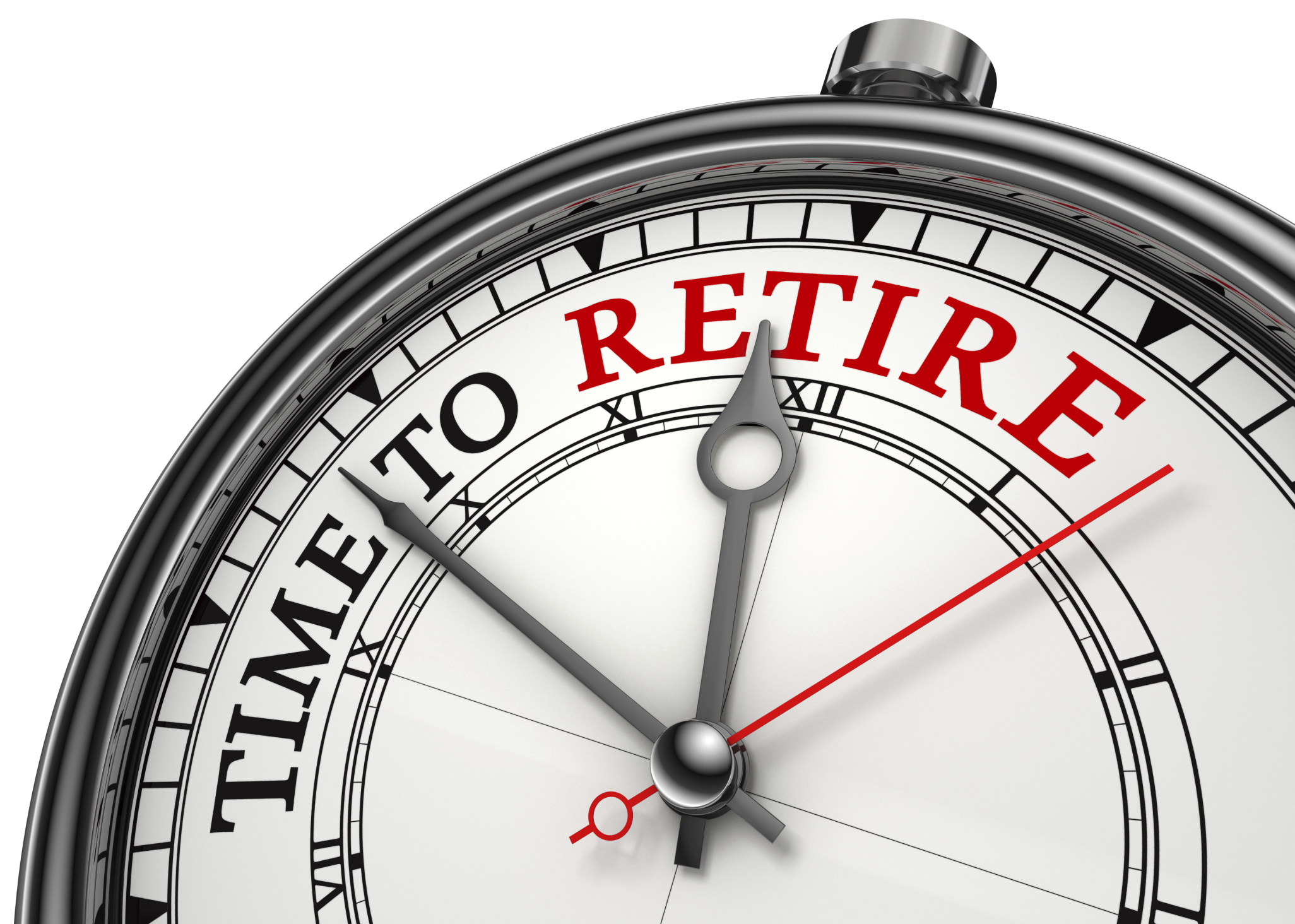This article was updated on Jan. 7, 2017. It was originally published on August 27, 2016.
Many of us, no matter our age, feel ready for retirement right now, drawn by the prospect of having endless job-free days. Most of us are not quite ready, though, because we haven't saved enough money yet. Here are some tips for retiring early or on time, and signs to look for that suggest readiness. You may be surprised to learn that an early retirement is not out of the question for you!

Image source: Getty Images.

Image source: Getty Images.
Surprise retirement parties
The folks at the Transamerica Center for Retirement Studies surveyed 2,000 American retirees in 2015 and found that most of them had retired sooner than they'd planned to. Specifically, 79% of those in their 50s, 67% of those in their 60s, and 53% of 70-something retirees retired before they had expected to. A 2015 Merrill Lynch report found that 55% of retirees had retired earlier than expected, with 37% of them retiring early because of health problems, 27% because of job loss, and 11% because they needed to care for a loved one.
Clearly, few of us have total control over exactly when we will retire and many people are surprised to find themselves with an early retirement. So what can you do to increase your odds of a timely and comfortable retirement? Here are four ways to get started.
Save and invest more -- for a planned or unplanned early retirement
One obvious way to brace for the possibility of an unplanned early retirement is to sock away more money for your golden years. If you expect to retire in the next 10 to 20 years, here's how much you can accumulate by socking away various sums that grow at an annual average of 8%:
|
Years Until Retirement |
Total Retirement Savings if You Invest... | ||
|---|---|---|---|
|
$8,000 Annually |
$10,000 Annually |
$12,000 Annually | |
|
10 years |
$125,000 |
$156,000 |
$188,000 |
|
15 years |
$235,000 |
$293,000 |
$352,000 |
|
20 years |
$395,000 |
$494,000 |
$593,000 |
Calculations by author.
Note how much less money you'll have in each scenario if you end up retiring five or 10 years before you had planned to. In this example, retiring five years ahead of schedule could cost you between $4,000 and $10,000 in annual income for the rest of your life. On the flip side, just think about how much better off you could be if you saved more every year and perhaps worked for a few extra years. If you can make some financial sacrifices today, then they'll pay off in spades when you clock out for good.

Image source: Getty Images.
Get in tip-top shape
If you want to retire on your own terms, then there are few bigger priorities than getting and staying healthy. Being in poor health dramatically increases your odds of an unplanned job loss. A 2015 University of Michigan study found that people are less likely to leave the workforce early if they have jobs that "entail less physical effort, less stress, and jobs that have not increased in difficulty in recent decades, and those in which people can reduce hours if desired."
Even if you do lose your job unexpectedly, being in good health will raise your quality of life and help keep your healthcare expenses in check.

Image source: Getty Images.
Alternative income streams can make you ready for retirement
One of the best ways to ensure your retirement security is to diversify your income streams. For example, you might consider purchasing an annuity, which provides regular income now or at a later date in exchange for a large up-front payment. Annuities offer better interest rates than CDs or money markets, and you can choose to receive your payouts now (with an immediate annuity) or at a later date (with a deferred annuity, which will offer a better interest rate).
Be careful with variable annuities and indexed annuities, which can come with high fees, restrictive terms, and unpredictable payouts. A more reliable option is a fixed annuity, which makes fixed payouts throughout a set time period (which can be the remainder of your life). They also offer better return on investment than CDs and money market funds.
As an example, a 70-year-old man in Missouri could recently purchase an immediate fixed annuity for $100,000 in exchange for about $650 per month, or $7,800 per year). With $300,000, he could get more than $23,000 per year -- enough, with Social Security income, to support many retirees.
Another potential income stream is rental property. You could buy a new property to rent out, or you could rent out your own home, or at least a room, through one of these newfangled services like Airbnb. Read up on each possibility before taking any action, though. Renting out a home or some apartments can generate a substantial amount of income, but it also tends to come with big expenses and headaches, like maintenance and troublesome tenants. In some cases, landlords hardly profit at all once property taxes and insurance costs are factored in. Furthermore, real estate cannot be sold quickly or easily if you need funds on short notice.
Taking the Airbnb route requires less commitment and expense, though you might encounter troublesome renters there, too. To do well with Airbnb, you want to be an excellent host so that you get excellent reviews, which can attract more guests. It also helps to familiarize yourself with the local Airbnb market and make sure you're offering competitive amenities and prices. If you're unfamiliar with rental services like Airbnb, it would be wise to try it out as a customer and learn how it all works.

Image source: Getty Images.
Strategize your Social Security benefits
Finally, read up on Social Security strategies, because they can make a big difference in how much you collect from the program. The most popular age at which to start collecting retirement benefits is 62 -- the earliest age possible. However, the longer you delay claiming your benefits, the bigger your checks will be.
Keep in mind that it's not typically a huge mistake to claim Social Security early, because although the checks will be smaller, there will be more of them. Taking benefits at 62 may also help you retire sooner. Still, if you can delay benefits and you think you may live a long life, then you may want those bigger checks down the road as you draw down your savings.
Remember to coordinate with your spouse, too. If you've earned a lot less over your working life than your spouse, then your spouse's benefit checks are likely to be larger. The two of you might, if possible, start collecting your benefit early while delaying your spouse's benefit so that it can grow larger. That's because Social Security benefits increase by a percentage (about 8%) for each year they're delayed, so the higher the base amount, the more it will grow each year until it's claimed.
Signs of being ready for retirement -- and possibly a planned early retirement -- include having saved enough, set up sufficient income streams, and, ideally, being healthy. Whether you retire on your own terms or not, there are steps you can take now to prepare yourself for the cushiest retirement possible, so don't delay.





